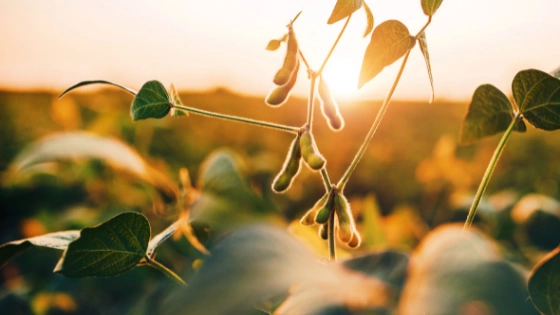Living within the Chesapeake Bay Watershed, Maryland’s farmers have long been drivers of sustainability — from soil conservation practices to nutrient and pest management — to help protect our waterways. This also holds true for the air we breathe. That’s why many farmers are looking to alternative fuels that reduce harmful greenhouse gas emissions to power their tractors, combines and more.
Biodiesel and ethanol are the two main alternative fuels that Maryland farmers turn to. Known as biofuels, they are one of the best tools readily available to fight air pollution from vehicles. Harnessing the power of the sun, water and soil, biofuels are made from renewable and biodegradable biomass — that’s energy that comes from plants and animals. They are cleaner-burning fuels that emit fewer emissions into the air, lessen our dependence on foreign oil, and are American-made. With these home-grown fuels in the mix, gasoline prices also range $0.50 to $1.50 per gallon lower in price.
“The key reasons we use biodiesel to fuel our farm equipment is that it’s not a fossil fuel and it’s a renewable source that can use soybeans,” says Talbot County farmer Travis Hutchison. The nearly 135-year-old Hutchison Brothers farm grows crops like corn, wheat, barley and soybeans. The Hutchisons have been long-time advocates of farming conservation practices.
Biodiesel is a renewable fuel that is typically made from oils produced from agricultural crops, such as soybeans, and other feedstocks, like animal fats. Biodiesel can be used as a substitute for or blended with petroleum-based diesel, the kind found at your local gas station. For example, a blend of 20% biodiesel with 80% petroleum diesel is known as B20. Biodiesel has excellent lubricating properties beneficial for engine performance. And for the air? Using biodiesel instead of petroleum diesel can reduce greenhouse gases, which raises the temperature and causes global warming, up to 78%.
Chip Bowling’s family has been farming in Charles County since the mid-1700s. He grows corn, soybeans, wheat, barley and grain sorghum on his farm and incorporates practices like no-till farming, cover crops and buffer zones. He served as the first president of the National Corn Growers Association (NCGA) from the state of Maryland.
NCGA is integral in finding new uses for corn like ethanol, a vegetable-based fuel that is non-toxic, water soluble and biodegradable. A 10% blend of ethanol with gasoline has been used for years to improve air quality. In fact, the Clean Air Act requires oxygenated fuels, like ethanol, in all petroleum-based gasoline to decrease air pollution which accounts for 97% of the gasoline sold in the U.S. containing 10% ethanol.
NASCAR drivers prefer a higher blend of gasoline with 15% ethanol, as it has proven to reduce emissions while boosting horsepower. And it’s not just for race cars. The EPA has reported that E15 will keep engines clean and efficient in any gasoline vehicle manufactured dating 2001 and newer. E85 is an alternative fuel to gasoline that Chip uses on his farm. It is 85% ethanol and is used by Flexible Fuel Vehicles (FFVs). Because it has a higher octane rating than gasoline, E85 not only reduced greenhouse gas emissions by 40%, it allows for more horsepower and torque, which is helpful on — and — off the farm.
Whether it’s biodiesel or ethanol, farmers are committed to innovation for cleaner air and better products for consumers. Using biofuels is an opportunity for every driver to take part in improving air quality.
Hungry for more? Check to see if you have one of the 22 million flex fuel vehicles that can operate on E85. Find a gas station that offers E85 fuel. Learn more about farming conservation practices.
Sign up for our newsletter and find us on Facebook, Twitter and Instagram.

